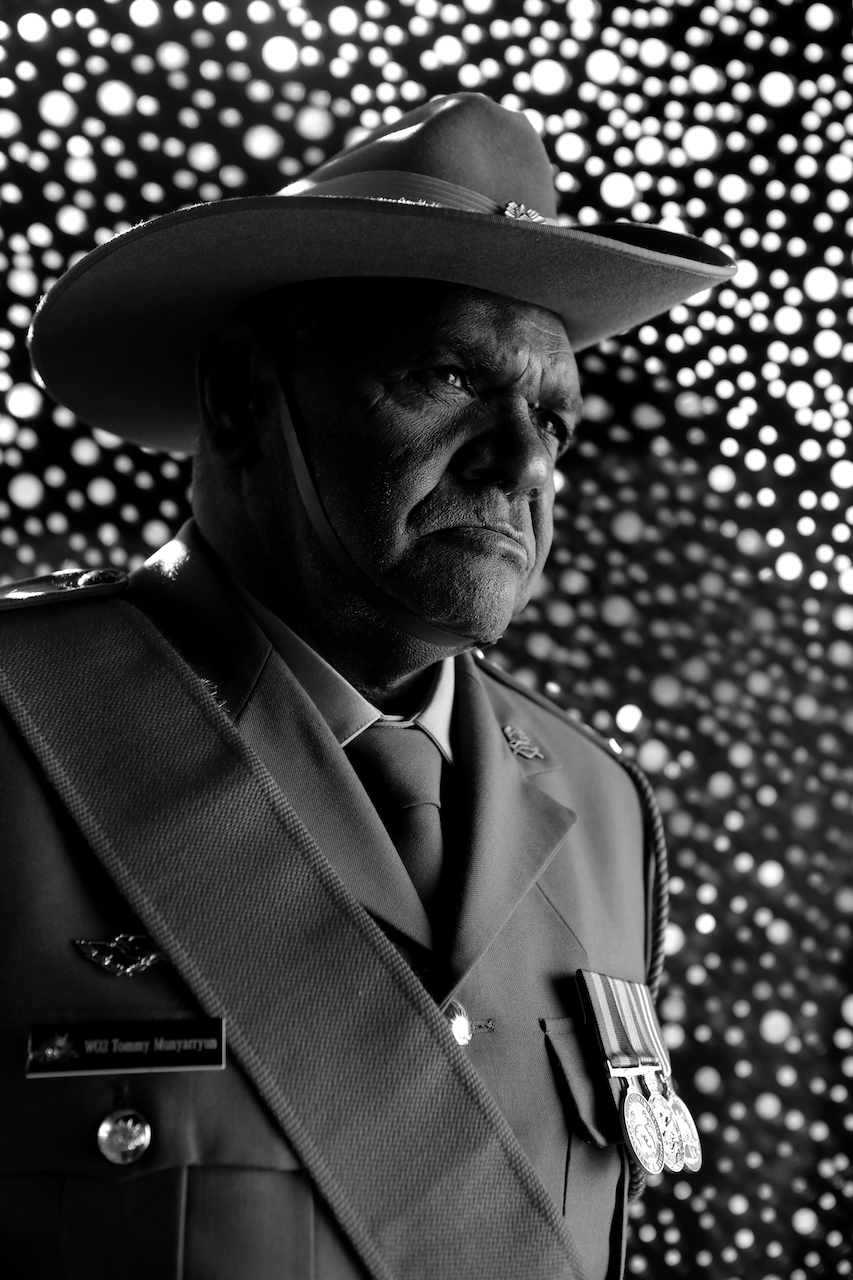Tommy Riyakurray Munyarryun OAM
Yolgnu – Wangurri Clan
Warrant Officer Class 2
NORFORCE (North-West Mobile Force)
Regional Force Surveillance Group
Australian Army Reserve
Medals
Order of Australia Medal
Australian Operational Service Meal – Border Protection
Defence Long Service Medal
Australian Defence Medal
My name is Tommy Riyakurray Munyarryun. I am from Yirrkala, East Arnhem Land, and my clan is Wangurri, and my home is at Dhalinybuy by the Cato River. I am a Warrant Officer Class 2 with the Australian Army’s NORFORCE, and I now live in Ramingining. When I was a boy, I heard stories from my elders of the 51 Yolngu men, including Burrumarra and Wonggu, all leaders from Arnhem Land. During WW2 they worked for Northern Territory Special Reconnaissance Unit doing coastal surveillance around Yirrkala, Milingimbi and Elcho Island. They were the Aboriginal eyes across the Top End for Defence. They knew the bush and how to defend it against the Japanese.
When I was a young man, I saw some soldiers walking by, and I just asked what are you doing? He said, ‘We work in NORFORCE – with the Army’. But I didn’t join till 1991. In 1984, I went to work for the police as a tracker and interpreter and became an Indigenous Liaison for the police force to help the community understand. Then I did my recruitment training and joined in 1991, and I’m still here. I got to do many courses, such as driving, patrolman, and radio, and we did exercises. The Commando course was hard, but really good. I’ve been serving with NORFORCE, which promotes cross-country cultural awareness. I make sure they get permission to go into homelands, talk with the team leaders and landowners, and ask if it’s okay or not okay to go to someone’s land and ask if NORFORCE can do some patrols or exercises out there.
I am proud to continue that tradition, wear the green, and work together with Indigenous and non-Indigenous soldiers and the community. I teach the Indigenous boys what I have learned from being in the Army and inspire them. My family is proud of me, too. I know it’s hard, but once you are in a leadership role, you make it much easier for everyone to work together.
In civilian life, I work in the health clinic. It’s not a big clinic, and we have visiting doctors coming, and they need an interpreter, so I help pick people up and take them to the clinic, helping people to understand what is happening to them. If something happens, they get sick and need to go to Darwin. In those situations, I go and talk with them to make them comfortable and escort them to Darwin. It’s important to have an Indigenous person with them. There should be more opportunities for young Indigenous people to work around the communities so that things can be understood. I have seen a lot of Indigenous people in Darwin just walking around the street, lying in the street or sitting in the long grass. They need real support from a Yolngu person, who is a community worker. They will hear stories, important stories that need to be heard too.
